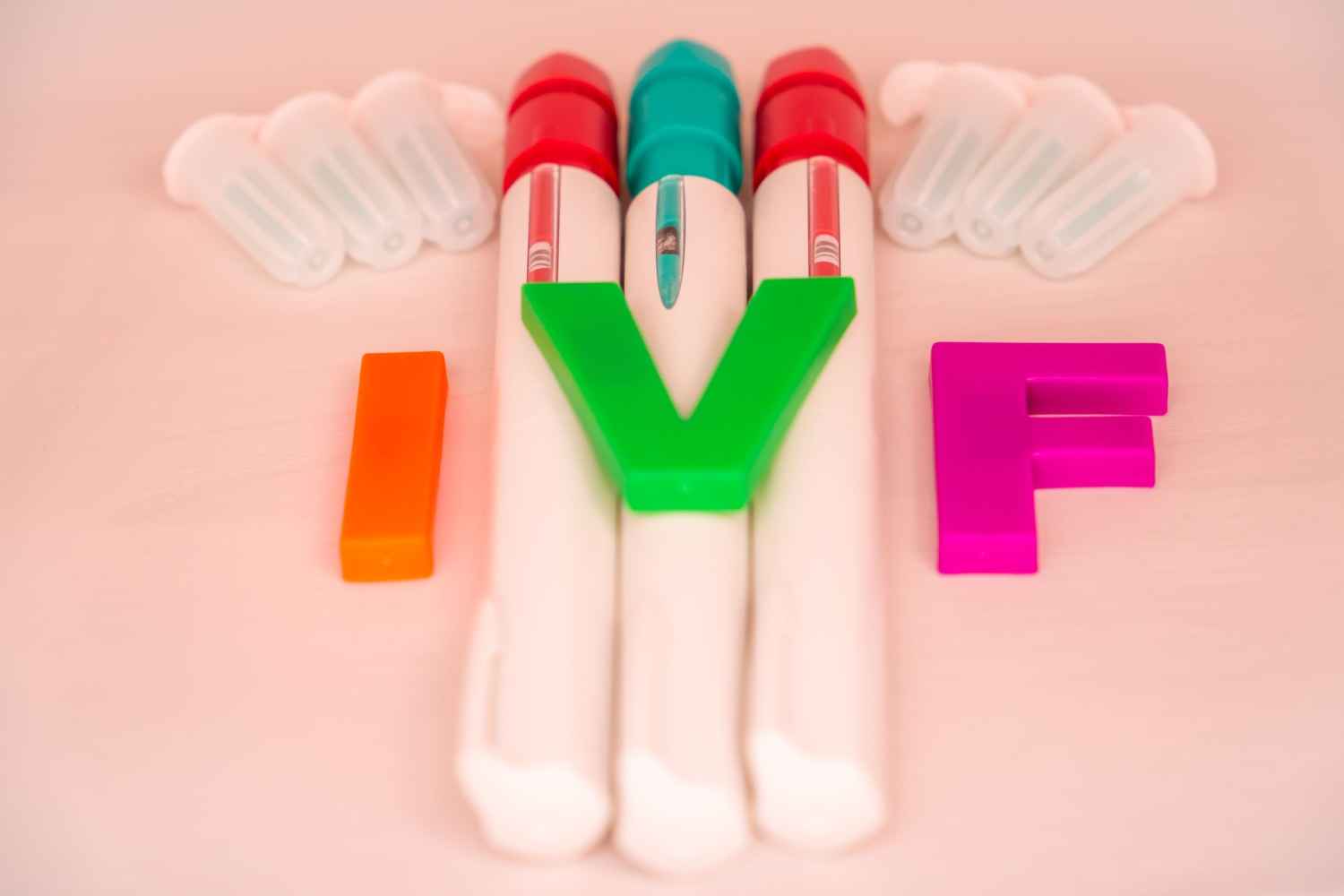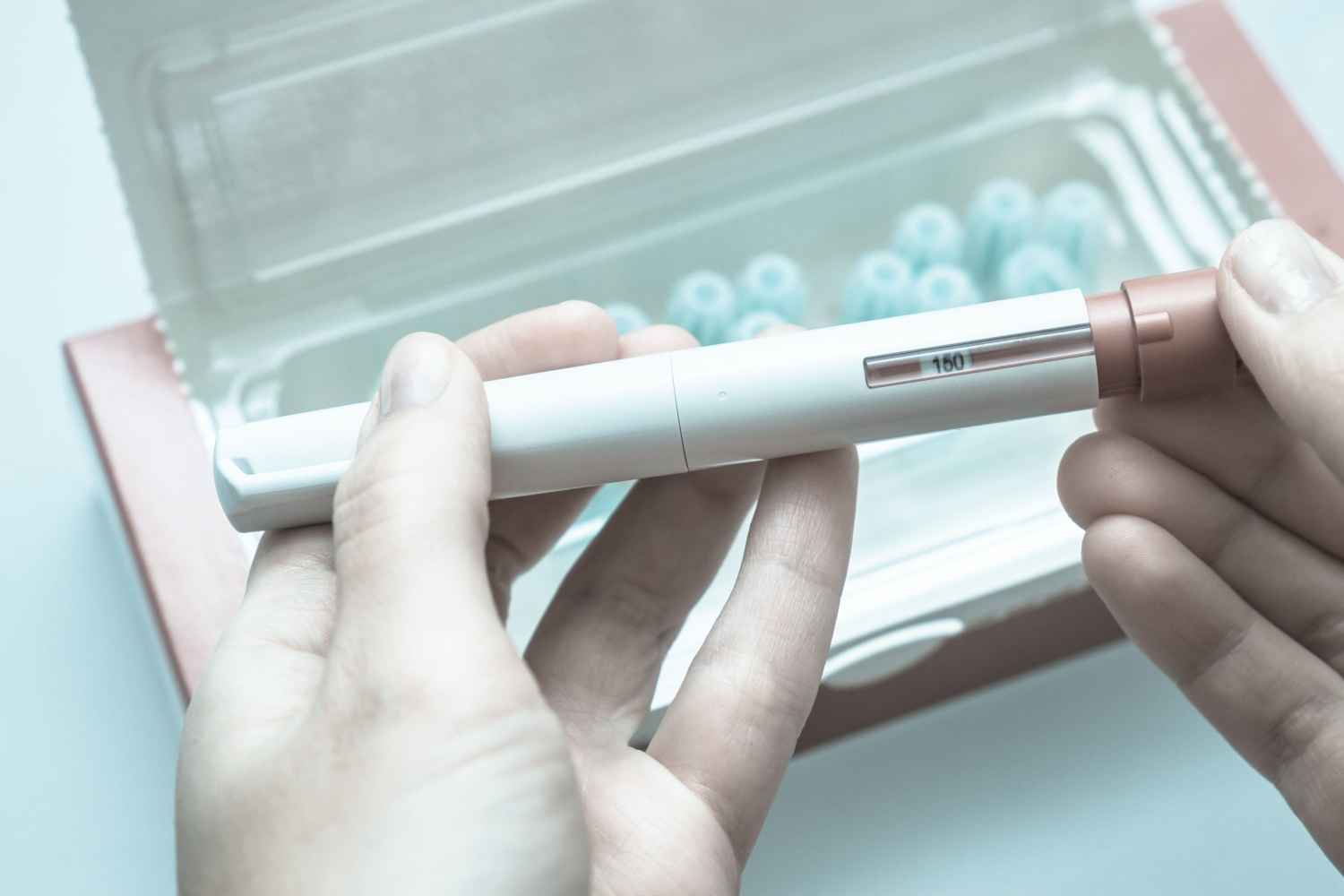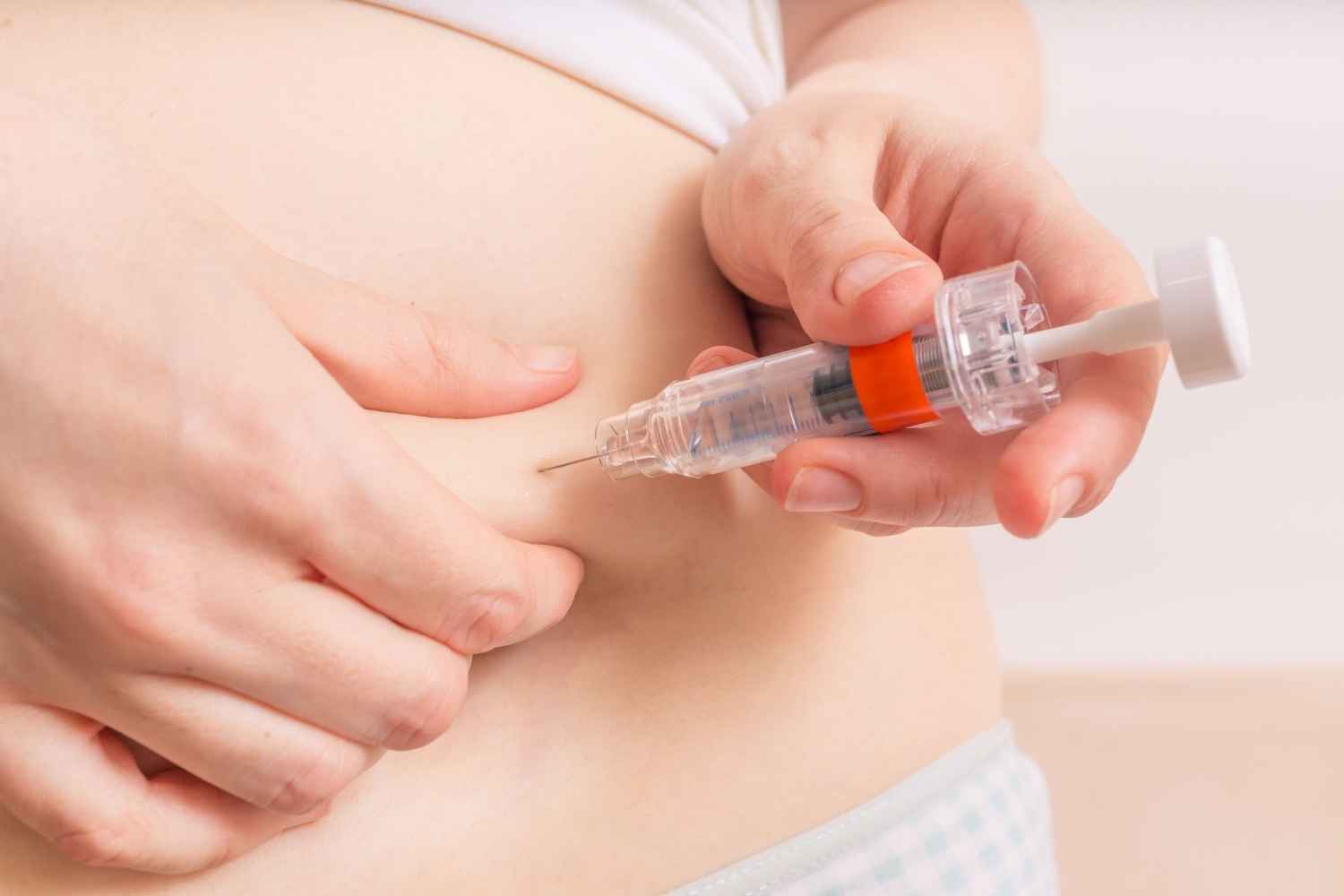
IVF or Invitro Fertilization is one of the most common forms of Assisted Reproductive Technologies that helps couples with various forms of infertility achieve their dream of having a baby. Injections form an important part of IVF protocol. Understanding the injections involved in IVF treatment may help couples undergoing the treatment cope with the physical and psychological manifestations of going through so many injectibles during their treatment cycle.
Different injections are given during different phases of the menstrual as well as the treatment cycle. The fertility specialist will decide the type of injection, dosage and timing taking into consideration various factors such as the health of the couple, medical background, previous pregnancies, if any and previous treatment cycles, if any.
In This Article
- What Are The Common Types Of Injections Used In IVF Treatment?
- How Often Are Injections Required During An IVF Cycle?
- Are There Any Risks Associated With These Injections?
- Can The Injections Affect The Success of IVF Treatment?
- FAQ’s
What Are The Common Types Of Injections Used In IVF Treatment?

In IVF (In Vitro Fertilization) treatment, several injections are stimulate the ovaries and regulate the reproductive cycle. Here are the primary types and purposes of these injections.
1. Gonadotropins
Gonadotropin injections (1) are of the following types.
a. Follicle-Stimulating Hormone (FSH)
Stimulates the growth and development of follicles in the ovaries, each containing multiple eggs instead of the usual single egg in a menstrual cycle. This is essential as more eggs increase the chances of successful fertilization.
b. Luteinizing Hormone (LH)
Often combined with FSH in medications to stimulate ovulation.
c. Human Chorionic Gonadotropin (hCG)
Administered to trigger the final maturation of eggs before they’re collected through egg retrieval.
2. GnRH Agonists And Antagonists (1A)
GnRH agonists suppress the body’s natural hormone production, preventing premature ovulation while GnRH antagonists are similar to agonists, they block the action of GnRH to prevent early ovulation.
3. Progesterone
Progesterone injections (2) are administered after egg retrieval to support the uterine lining, aiding in embryo implantation.
These injections are typically administered via subcutaneous (under the skin) or intramuscular (into the muscle) routes, depending on the medication and specific protocol determined by the fertility specialist.
The primary objective of these injections is to stimulate the ovaries to produce multiple eggs, which are then retrieved, fertilized in a laboratory setting, and subsequently transferred to the uterus in the hopes of achieving a successful pregnancy.
The dosages and timing of these injections are closely monitored and adjusted throughout the IVF cycle to maximize the chances of successful fertilization and implantation.
The injections used during IVF treatment serve several crucial purposes.
- Stimulating Egg Production
- Preventing Premature Ovulation
- Triggering Final Egg Maturation
- Supporting the Uterine Lining
Overall, these injections are instrumental in controlling and optimizing the reproductive cycle, ensuring that the eggs are mature and the uterine environment is conducive to successful fertilization and implantation of the embryo, increasing the chances of a successful pregnancy during IVF treatment
How Often Are Injections Required During An IVF Cycle?

The frequency of injections during an IVF (In Vitro Fertilization) cycle can vary depending on the individual’s specific treatment protocol and the cycle stage.
In general, injections are typically required once or multiple times daily for a certain duration. Here’s an overview
1. Stimulation Phase
Gonadotropin injections (FSH and sometimes LH) are usually administered once a day or sometimes multiple times a day for about 8 to 14 days. The ovaries are stimulated to produce more eggs.
2. Trigger Shot
A single hCG injection is given when the eggs are mature, usually about 36 hours before egg retrieval.
3. Luteal Phase Support
After egg retrieval, progesterone injections might be required daily or as prescribed to support the uterine lining for embryo implantation.
The fertility specialist determines the specific injection schedule, dosages, and frequency based on individual factors such as age, ovarian reserve, and response to medication. Detailed instructions and a precise timeline for injections are typically provided by the healthcare team overseeing the IVF cycle.
It’s essential to adhere strictly to the prescribed schedule and dosage for the best chances of success in an IVF cycle. Regular monitoring through ultrasounds and blood tests helps adjust the medication dosage and timing as needed throughout the cycle.
Are There Any Risks Associated With These Injections?

While injections used in IVF treatment are generally safe, there are potential risks and side effects associated with them. These risks can vary from person to person and depend on individual factors, including the specific medications used and how the body responds to them.
Here are some potential risks
a. Injection Site Reactions
Redness, swelling, bruising, or discomfort at the injection site are common but usually minor and temporary (3).
b. Ovarian Hyperstimulation Syndrome (OHSS)
This occurs when the ovaries become swollen and painful due to overstimulation from fertility medications. Symptoms range from mild abdominal discomfort to severe bloating, nausea, vomiting, and in rare cases, fluid accumulation in the abdomen and chest. Severe cases require medical attention (4) (4A).
c. Multiple Pregnancy
Stimulating the ovaries to produce multiple eggs increases the risk of multiple pregnancies (twins, triplets, etc.), which carries higher risks of complications for both the mother and babies (5).
d. Allergic Reactions
Though rare, some individuals might be allergic to the medications, leading to allergic reactions ranging from mild rashes to more severe responses (6).
e. Mood Changes
Hormonal medications used in IVF can sometimes lead to mood swings, anxiety, or emotional sensitivity.
f. Blood Clot Formation
There might be a slightly increased risk of blood clots with certain medications, especially if other risk factors are present (7).
g. Ectopic Pregnancy
While not directly caused by the injections, stimulating ovulation can increase the risk of ectopic pregnancy, where the embryo implants outside the uterus, typically in the fallopian tubes (8) (8A).
It’s crucial to discuss potential risks and side effects with the healthcare provider before starting an IVF cycle. Close monitoring during the cycle helps mitigate risks, and any concerns or unusual symptoms should be reported to the medical team promptly for appropriate guidance and management
Can The Injections Affect The Success of IVF Treatment?

The injections used in IVF treatment play a critical role in stimulating egg production, timing ovulation, and supporting the uterine environment for embryo implantation.
When administered correctly and monitored closely, these injections contribute to the success of IVF treatment. However, their impact on success can be influenced by several factors.
1. Medication Adherence
Adhering to the prescribed injection schedule, dosage, and instructions is crucial. Missing doses or deviating from the treatment plan can affect the stimulation of egg development and the overall outcome.
2. Individual Response
Every person’s body responds differently to medications. The effectiveness of the injections and the body’s reaction to them can impact the number and quality of eggs produced, which can affect the success of IVF.
3. Monitoring And Adjustment
Regular monitoring through ultrasounds and blood tests helps healthcare providers adjust medication dosages and timing as needed. Proper monitoring ensures that the ovaries respond optimally and that the uterine lining is receptive to embryo implantation.
4. Risk of Complications
While rare, certain complications associated with the injections, such as ovarian hyperstimulation syndrome (OHSS), can impact the success of IVF. Proper management of any complications is crucial to achieving a successful outcome.
5. Overall Treatment Plan
The injections are just one aspect of the entire IVF process. Factors like embryo quality, the expertise of the fertility clinic, and the overall health of both partners also contribute to the success rates of IVF.
While the injections are essential in IVF and significantly contribute to its success, their impact is part of a broader treatment strategy. Close collaboration with healthcare providers, adherence to the treatment plan, and consistent monitoring are key factors in optimizing the chances of a successful IVF outcome.
FAQ’s
1. Can IVF Injections Get You Pregnant?
Different types of IVF injections are given throughout the treatment cycle. These injections help stimulate egg production, prevent premature ovulation, trigger egg maturation and the right time, stimulate egg release and support uterine lining for possible pregnancy. These injections do improve your chances of getting pregnant manifold but certain other factors also contribute to the outcome of the treatment cycle. IVF injections do increase the chances of getting pregnant but cannot guarantee pregnancy success.
2. What to Avoid During IVF Injections?
Avoid smoking, drinking and consuming drugs. Limit caffeine intake. Avoid physical stress and strenuous activities. Try to relax and avoid mental stress as much as possible. You may also need to avoid certain medications during this period. Your doctor can advise you on this aspect.
References
- In Vitro Fertilization – StatPearls – NCBI Bookshelf – [https://www.ncbi.nlm.nih.gov/books/NBK562266/]
- Luteal Phase Support in IVF: Comparison Between Evidence-Based Medicine and Real-Life Practices – PMC – [https://www.ncbi.nlm.nih.gov/pmc/articles/PMC7461775/]
- Local side effects of subcutaneous and intramuscular urinary gonadotropins for ovarian stimulation in in vitro fertilization: a prospective, randomized study – PubMed – [https://pubmed.ncbi.nlm.nih.gov/9591489/]
- Ovarian Hyperstimulation Syndrome: A Narrative Review of Its Pathophysiology, Risk Factors, Prevention, Classification, and Management – PMC – [https://www.ncbi.nlm.nih.gov/pmc/articles/PMC5993897/]
- In Vitro Fertilization and Multiple Pregnancies – PMC – [https://www.ncbi.nlm.nih.gov/pmc/articles/PMC3379537/]
- Dermatological Manifestations in Patients Undergoing In Vitro Fertilisation: A Prospective Study – [https://journals.sagepub.com/doi/abs/10.1177/1203475417752370]
- Thromboembolism after ovarian stimulation: successful management of a woman with superior sagittal sinus thrombosis after IVF and embryo transfer: Case report | Human Reproduction | Oxford Academic Thromboembolism after ovarian stimulation: successful management of a woman with superior sagittal sinus thrombosis after IVF and embryo transfer: Case report | Human Reproduction | Oxford Academic (oup.com)
- Top‐quality embryo transfer is associated with lower odds of ectopic pregnancy – Anzhel – 2022 – Acta Obstetricia et Gynecologica Scandinavica – Wiley Online Library – [https://obgyn.onlinelibrary.wiley.com/doi/10.1111/aogs.14375]
